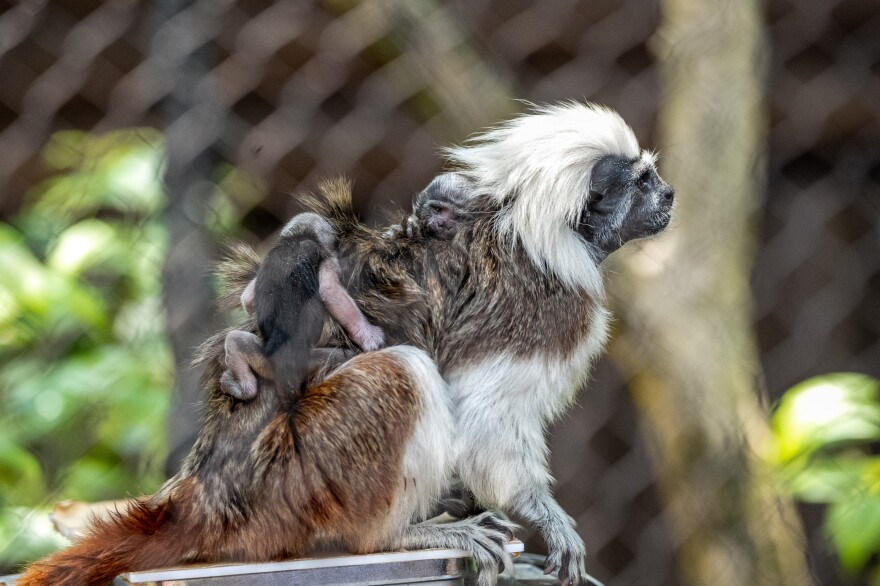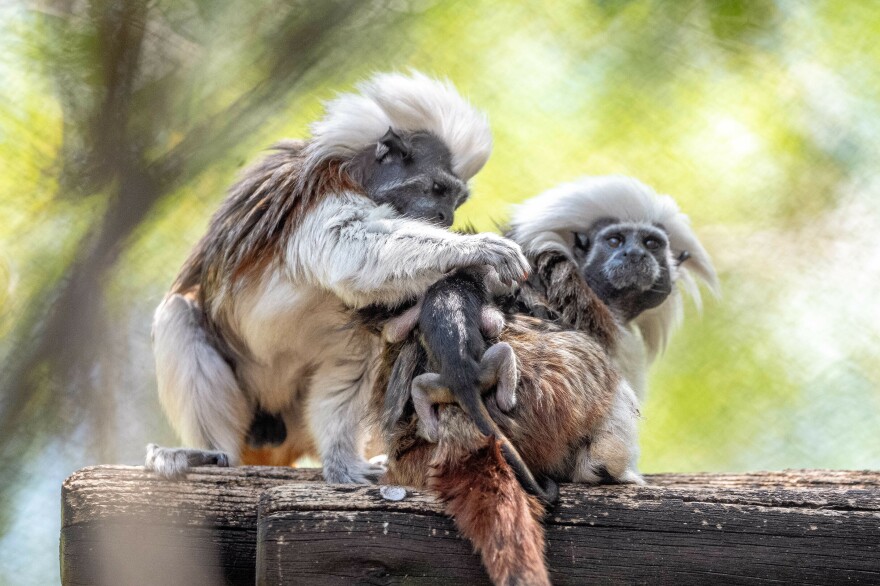Walt Disney World is celebrating the birth of two rare cotton-top tamarin monkeys that arrived last week — the first new births of the species at the Florida destination since 2001.
So far, workers don't know if the white-haired twins born on June 12 are male or female, so they don't have names yet.

But the four-inch-long newborn monkeys living at Disney's Animal Kingdom Theme Park have already been spotted clinging to their mom and dad, who will carry the babies around on their backs for up to 14 weeks.
Cotton-top tamarins are native to the tropical forests of northwestern Colombia, and park officials say there are fewer than 7,500 left in the wild.

According to the International Union for Conservation of Nature, the species is critically endangered due to factors such as habitat loss and the illegal pet trade, and their population is declining.
But the addition of the newborn twins, which weigh about as much as a "common chicken egg" and will grow to be roughly the size of a squirrel, have been a welcome addition to the threatened species.
Cotton-top tamarins forage for fruit and insects in the forest canopy where they live and use at least 38 different calls to communicate with each other, the park said.
Copyright 2023 NPR. To see more, visit https://www.npr.org.


